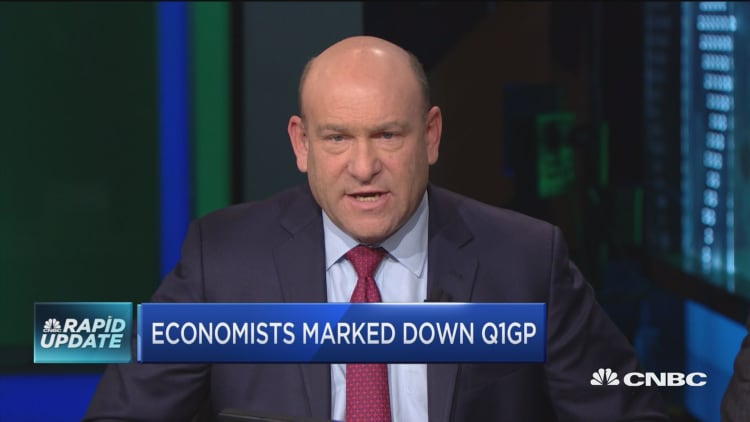
J.P. Morgan slashed expectations for U.S. economic growth in the first quarter thanks to Wednesday's "hotter than Hades" inflation reading and "ugly" retail sales numbers.
The bank's chief U.S. economist explained that the Labor Department's "scorching" core consumer price index measure likely means an emboldened Federal Reserve.
"While it is still early going, we are taking down our outlook for first-quarter gross domestic product from 3.0 percent to 2.5 percent," wrote economist Michael Feroli. "Today's inflation reading should probably cement in place the Fed's intent to hike rates at the March FOMC meeting."
The economist added that core CPI posted a 0.349 percent monthly gain, its largest month-over-month gain since 2005. Though economists across Wall Street have differed on how many times the central bank is likely to raise rates in 2018, the odds of a March rate hike are now over 80 percent, according to the CME FedWatch tool.
The Atlanta Fed also lowered its projection on Wednesday, calling for growth of 3.2 percent in the first quarter versus prior expectations of 4 percent on Feb. 9.
Inflation fears have spooked investors in recent weeks after a strong January jobs report ignited interest rates and sent the Dow Jones industrial average and the S&P 500 into correction territory. Classical economics holds that excessive fiscal stimulus in the form of tax cuts or government spending temporarily elevates GDP while prices adjust to catch up to increased output.
"We now also think the odds are moving up that [the Fed's bankers] also revise their guidance at that [March] meeting from looking for three hikes this year to four, aligning with our view," Feroli added.
But inflation can also hurt consumer spending as prices rise.
The economist also took time to highlight an "ugly" January retail sales report. January retail sales fell unexpectedly in their biggest drop since last February, sliding 0.3 percent. Sales were revised down to flat in December and down to 0.8 percent in November, Feroli said.
"The revisions take our tracking of fourth-quarter GDP from 2.6 percent to 2.4 percent," he added. "A delay in tax refund payments may have hurt consumption last month, and the weather could have also been a depressing factor. As these influences fade we expect some modest firming in consumer spending later in the quarter."


